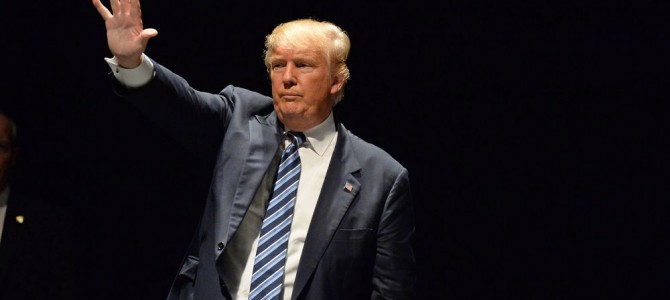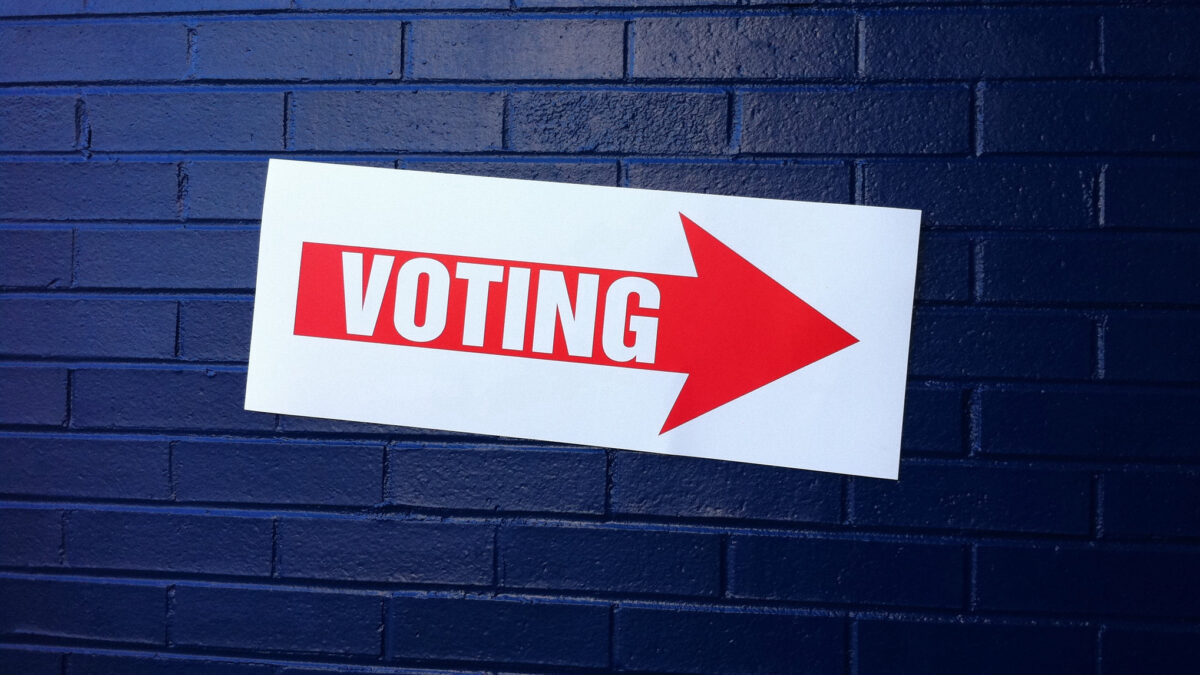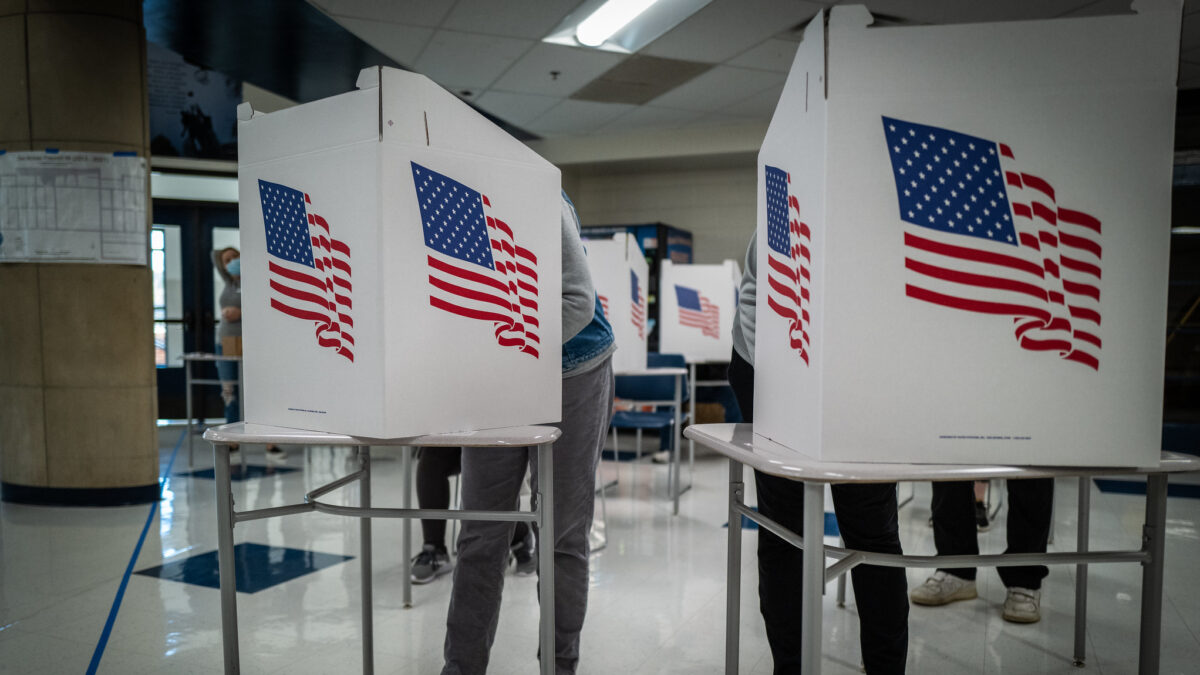
Since I consider myself a traditional conservative, many friends of mine, on both the Right and the Left, are puzzled by my unwavering support for Donald Trump.
Their bewilderment is understandable. Trump is often rude and obnoxious. His demeanor can be arrogant and dismissive. At times, he comports himself as reckless and willing to lash out prematurely, prior to fully understanding all of the facts at hand. To put it simply, he is a “wrecking ball.”
Furthermore, Trump isn’t even a pure conservative in terms of policy; he is a populist. His statements over the years regarding such areas as limited government, religious liberty, states’ rights, and abortion have been inconsistent at best, and in some cases, have steered firmly to the left.
Still, given all of this baggage, I have my feet planted firmly in Camp Trump. But why? How can a principled, pragmatic, deliberate conservative be drawn to such a candidate? It is because I believe conservatism doesn’t stand a chance in this country without first delivering a very heavy dose of populism.
Populism Versus Conservatism
Populism, at least Trump’s version of it, is a platform built largely on the principle of economic nationalism. It focuses on three primary policy areas: trade, defense, and immigration.
Trump’s description of the problem for each is very clear: 1) our trade policy has decimated our manufacturing base, leaving millions of Americans economically stranded; 2) our defense policy has engaged us in conflicts around the globe that in many cases have actually made the United States less secure, and have added considerably to our bloated national debt; and 3) in 1986, Ronald Reagan granted amnesty to approximately 3 million illegal immigrants, on the condition that our borders would be secured and illegal immigration would be dramatically curtailed. Since that time, at least 11 million (and likely many more) illegal aliens have entered the United States, effectively suppressing wages for many working Americans, and adding tremendously to the cost of our education and public assistance programs.
Do Trump’s positions on these areas alone define him as an unabashed conservative? No. As enumerated above, several other categories need to be added when determining whether an individual is decidedly conservative or liberal. But are Trump’s positions on trade, defense, and immigration not conservative? Absolutely not!
His stance on these issues, when taken together, represent the most important plank in the history of American conservatism. That is the vital importance, and in fact primacy, of national sovereignty. In fact, since our nation’s founding, the principle of national sovereignty has been the preeminent and driving force for what it means to be an American conservative.
It is the position that as “one nation, under God, indivisible, with liberty and justice for all” we are not only entitled but obligated to define and protect our own country, our own principles, and our own culture, independent of those nations and societies that claim the same rights and obligations.
This is where this author believes the battle line needs to be drawn within the Republican Party: between those true conservatives who consider national sovereignty preeminent, and those who profess to be conservative, only to advance their own ideological or avaricious priorities.
Stop Tarring Us for ‘Isolationism,’ ‘Protectionism,’ and ‘Nativism’
No individual has done a better job of articulating the schizophrenic dilemma the Republican Party finds itself in today than Pat Buchanan. In fact, it was Pat, who, when running for president himself in ’92 and 2000, accurately predicted what we are facing today. He summed up perfectly the forces that have driven America into its current state of hopelessness when he described the culprits as “two wings on the same bird of prey,” that being the established power structures of both the Republican and Democratic parties.
Pat also reminded us that, on more than one occasion, Bush 43 emphatically denounced the populist platform long before Trump’s candidacy. Bush defined populist positions on defense, trade, and immigration as “isolationist,” “protectionist,” and “nativist,” respectively. In 1991, shortly after the Gulf War, his father, George H. W. Bush, proudly announced to the entire world that we were entering a “new world order” (Bush’s words, not mine).
Since that time, under two Republican and two Democrat administrations, Americans have witnessed the following:
1) In the name of national defense and America’s obligation to lead the free world, we have spent trillions of dollars and lost thousands of American lives in foreign conflicts that have done little in securing order and peace, particularly in the Middle East. In fact, our intervention in places like Iraq and Libya has done a great deal to foster chaos, and create avenues through which malicious regimes and terrorist groups continue to grow and thrive.
In an effort to revive Woodrow Wilson’s mission to “democratize the world,” we have taken the presumptive and arrogant position that the United States has the right to dictate the political make-up of cultures and countries different than our own. We are doing all of this with money the country doesn’t have, and largely at the behest of other nations that refuse to participate, financially or otherwise. Americans of nearly every political and philosophical persuasion have come to realize what a misguided policy this has been.
Is this really a position of “isolationism,” or one of simple common sense?
2) In the name of free trade, since Bush 41 both parties have worked closely together to pass the North American Free Trade Agreement, establish the General Agreement on Tariffs and Trade II, form the World Trade Organization, and grant Communist China most favored nation status in trade. What has this gotten us? Well, since 1991, our accumulated trade deficit approaches $12 trillion! Tens of thousands of manufacturing plants have closed, and millions of American jobs have been sacrificed for the sake of globalism. Now establishment Republicans and Democrats are locking arms once again to promote the Trans-Pacific Partnership (TPP).
Mitt Romney tells us Trump’s position would incite a trade war. Really? Since ‘91, our trade deficit with China alone exceeds $4 trillion, and he’s afraid of a trade war? Can he not see that we have been in the middle of a trade war for decades, but one we simply choose not to fight? It’s clear by now that fair-minded Americans on both sides of the aisle understand you can’t have true free trade without true fair trade.
Is this really a position of “protectionism,” or one of simple common sense?
3) In the name of compassion and human rights, today, our southern border has become a piece of Swiss cheese. The argument to secure our borders and deport, at least temporarily, those who are here illegally, stems from the simple fact that we are a nation of laws, which, everyone is required to abide by.
Bushes 41 and 43, Bill Clinton, and Barack Obama would all consider this position as lacking in compassion. But the overwhelming majority of Americans understand that what truly lacks compassion is when a society attempts to absorb a group or groups of people it cannot properly and effectively assimilate in a fair and just manner. They realize, among other things, that when we fail to address this issue firmly, we are helping to drive down wages for hard-working Americans; we are further stressing our overworked public education system; and we are taxing our public assistance programs to an extent that our local, state, and federal governments are increasingly less capable of addressing.
Finally, if establishment Republican and Democrat leaders are unwilling to strictly enforce laws related to those people who are here illegally, on what grounds do they claim authority to enforce laws pertaining to this country’s legal citizens?
Is this really a position of “nativism,” or one of simple common sense?
In these three critical areas, the Bush and Romney camps have not only disavowed the core basis for conservative thinking, they have also turned their backs on American sovereignty and the American middle class. They are not conservative leaders, they are false prophets.
We Have Met the Enemy
In 1970, cartoonist Walt Kelly, in the comic strip Pogo, paraphrased a quote of some historical significance with the line: “We have met the enemy, and he is us.” No better description could be applied to the power base of the Republican Party. The party has long been dominated by two closely aligned factions that represent little affiliation with conservative principle or patriotic zeal: the Chamber of Commerce coalition, and the neoconservative crusaders.
By its very title, it should surprise no one that the Chamber of Commerce lobby places as its top priority the almighty bottom line and corporate profits. Thomas Jefferson said it best when he declared: “The merchant has no country.” This was not an indictment against free enterprise or the aspiration of individuals to prosper and grow rich. It simply recognized the immutable fact that business decisions are driven chiefly by the principle of profit maximization, and that a business enterprise will always follow this maxim, whether it is realized in China, Mexico, or the United States.
Many transnational corporations and big business and financial concerns have profited greatly through foreign production and financial multilateralism, while America’s manufacturing base has been pulverized and the American middle class has been punished. A populist message that threatens to renegotiate trade deals and treaties and bring production and jobs back to the United States absolutely terrifies the big business boys. They will go to any lengths to ensure this does not take place.
As for the neocons, their position is just as self-serving. The neoconservative movement began primarily with a group of leftist ex-Trotskyites, who comfortably made their home in the Democratic Party of Franklin Delano Roosevelt in the ’30s. Their foreign policy adamantly opposed the imperialistic adventures of Russia’s Joseph Stalin, while their domestic policies remained firmly progressive.
In the late ’60s they began moving to the Republican Party, when the anti-war messages of Gene McCarthy and George McGovern compelled them to align with the party that was more in line with their pro-intervention position. The transition was effectively complete by the end of the Carter administration, when the vast majority of neocons made the Republican Party their permanent home.
This group of political gypsies has always placed limited emphasis on domestic policy. Their primary mission in recent decades has essentially been to define and direct America’s leading role in the “new order” that Bush 41 ushered in, back in ’91. Importantly, by that time the Soviet empire was on its way out. They then turned their sights on the Middle East. They are practically single-handedly responsible for the mess in which we find ourselves today in that part of the world.
The idea that a populist candidate would offer up a more pragmatic and limited interventionist foreign policy terrifies them, as well. Just like the big business boys, they will go to any lengths to ensure this does not take place.
These two factions, by far the most influential and powerful in the Republican Party, are not only responsible for subverting the traditional conservative underpinnings of the party, they are endangering the future viability of the party altogether. The story becomes even more sordid when you consider how closely linked the two groups are in terms of defense spending and military intervention. Can you say “military-industrial complex”?
Donald Trump’s Slippery Road Ahead
Some might think such an impassioned show of support for Trump populism would be accompanied by a commensurate level of hope and optimism. Sadly, I cannot offer that. Until recently I actually thought Trump would have a much easier time winning the general election than the Republican nomination. I felt the Republican establishment would do anything, including try to force a brokered convention, to stop him. But if he could somehow find a way to get over this giant hurdle, his populist message of fair trade and limited military intervention would woo enough Independents and blue-collar Democrats to take him over the hill against Hill.
But now that we see how incredibly pernicious the Republican attacks on Trump have become, there is no doubt that these establishment turncoats will pull out all the stops to ensure that Hillary Clinton becomes the forty-fifth president of the United States. This is because, contrary to her campaign rhetoric, she has demonstrated time and again, through action and deed, she stands tall with the Chamber of Commerce clan on trade policy, and stands even more firmly with the neocons on foreign policy.
Whether this unholy alliance is solidified through the promotion of a faux third-party candidate, or an even more devious form of subterfuge and attack, remains to be seen. One thing is for sure, though: Trump would have to defy all odds to emerge the winner.
But this is why conservative support for Trump is more important than ever. If the center or establishment wings of the two parties come together as a result of Trump’s candidacy, and Trump gets trounced, this will undoubtedly result in a tectonic shift in party politics. The likely outcome will be the formation of a populist party, which will find a home either under the Republican banner or a separate, independent party.
Either way, the Republican Party, as it was once known, will cease to exist. This is where it gets really interesting. In such a scenario, the driving force of this populist movement will either be fundamentally conservative (Trump supporters) or progressive (Sanders supporters). The internal battles will be ugly and brutal, and the only glue to keep these otherwise opposing groups together will be their unified policies on trade, defense, and immigration.
As the fight for this new party identity wages on, it will require a significant number of informed and principled conservatives to lead the charge for the A Team.
Okay, But Still—Donald Trump, Really?
When I measure Trump against someone like Ted Cruz, I have to admit I’m a little torn. Cruz is a true constitutionalist, a rare politician who understands very well that our nation was founded by a courageous set of traditional conservatives like Washington, Adams, and Hamilton, and an equally brilliant group of classical liberals, such as Jefferson and Franklin. It was the oftentimes contentious and combative debates between the two factions that gave us the remarkable framework for government that we call our Constitution and the Bill Of Rights.
Cruz is a conservative, and an incredibly talented constitutional lawyer. I respect and admire his courage to take a sound and principled message to the American electorate. Unfortunately, I think his positions, specifically on trade and defense, are suspect. He has denounced TPP, but his decision wavered until he fully realized which direction the wind was blowing with the base.
He has also stated he is opposed to “regime change,” giving him lots of wiggle room in terms of military intervention. In fact, if we consider his position prior to the campaign, he has been far more allied to the neoconservative platform. In both of these areas, he has demonstrated a relatively shaky position, at least in comparison to Trump.
So, although I have serious questions regarding Trump’s position on a number of issues, I believe his core populist platform is the soundest and surest way for America to begin rebuilding her neglected middle class and restoring her sovereignty. Without these two imperatives in place, a true conservative message doesn’t stand a chance, as more and more Americans today, particularly young voters, are lured into a solidly entrenched progressive philosophy.
Every society, in every age, is composed of some combination of the haves and the have-nots. It is the primary objective of any civilized and compassionate culture to maximize the former and minimize the latter. A free and democratic nation is doomed when the have-nots become the majority.
This is because those whom the majority brings to power in the name of progressivism will always work to “rob Peter, to pay Paul.” Then the downward spiral of socialism begins. As history has shown us time and again, it is destined to meet a tragic end. As Margaret Thatcher said: “Socialism is just fine…until you run out of other people’s money.”
America is at a very dangerous tipping point. Due in equal measure to both progressive and globalist policies, the have-nots are quickly outnumbering the haves. If the scales are not rebalanced in a very short period of time, we’re in big trouble.
With all of its faults, America is still the most generous nation in the history of mankind. For over a century she has been the engine through which so many other countries around the world have been saved, both economically and militarily. Through sound guidance and by example, she has proudly and effectively promoted the principles of free enterprise, and demonstrated the prosperous results of market-based economics.
But, over the last 25 years in particular, in the name of globalism and the establishment of a new world order, the cost of America’s generosity and influence has been placed squarely on the back of the American taxpayer, and it has had a devastating effect on the backbone of our society—the American middle class. America will always remain a loyal ally and a defender of freedom, and a fair and proactive international trading partner. She will always open her arms wide to a healthy and legitimate process of immigration. But she can no longer afford, financially or philosophically, to be the world’s disproportionate benefactor. Our political leaders need to take a stand.
Sadly, but resolutely, I believe we need to take a “wrecking ball” to American politics today. That ball has to be in the form of a candidate who is willing to do whatever is necessary to bring our middle class back to the “family of haves” and restore our country’s sense of independence and sovereignty. I believe Donald Trump is the most qualified to lead this movement and to begin returning America to all Americans.









